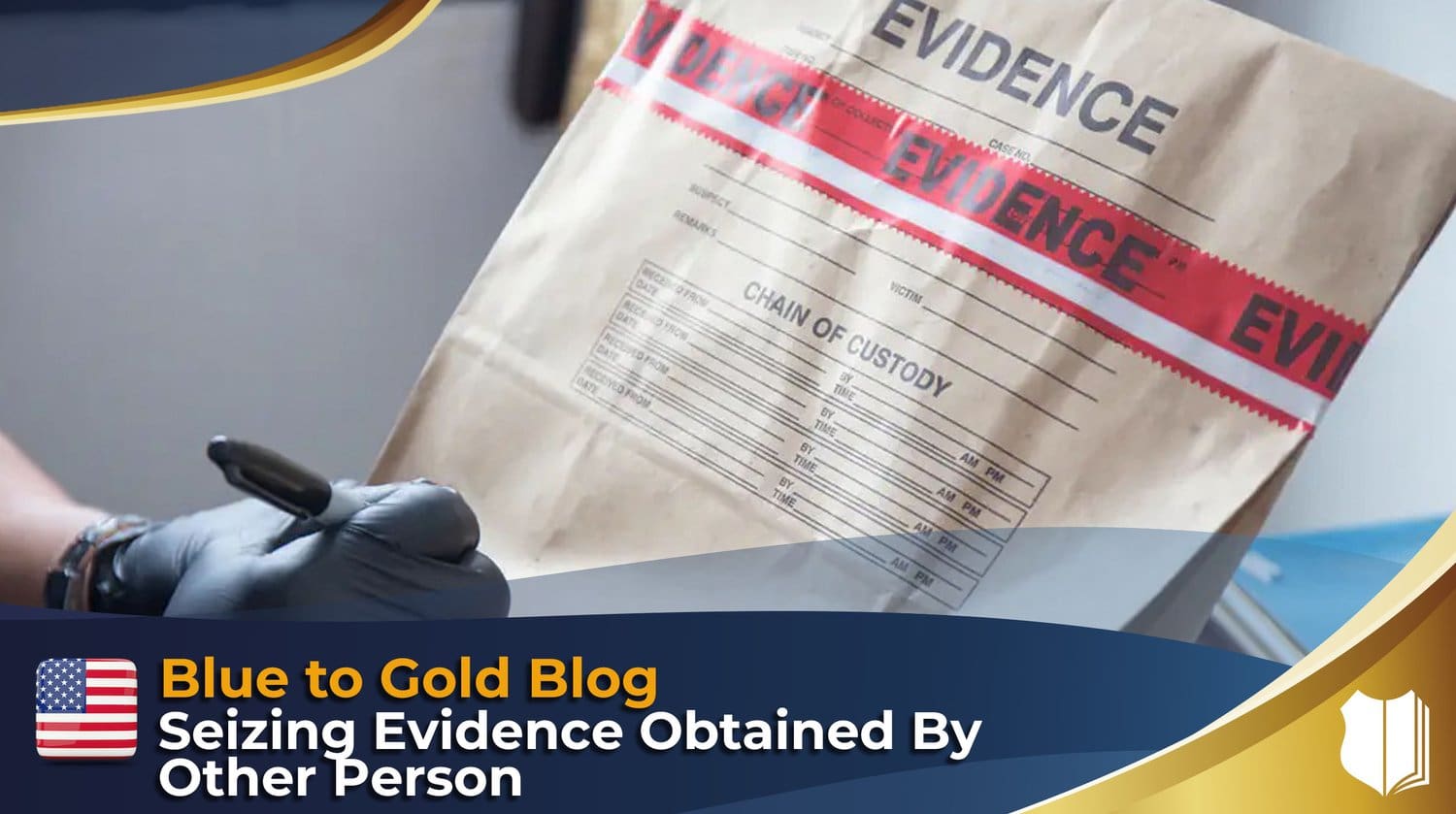How can police seize evidence that was obtained unlawfully by another person?
Hello. My name is Anthony Bandiero, attorney and senior legal instructor for Blue to Gold Law Enforcement Training. This question comes from an officer in Miami.
He says, ‘We went to a number one call for a domestic disturbance. We’re inside the residence and while talking to the male and female, the male reaches into the woman’s purse, (it doesn’t say if they’re married or not), and grabs a crack pipe. He shows it to the officer and says, ‘Look, this is what she’s up to.’ The officer then returns the pipe back into the purse, and leaves the bag inside the home and basically escorts the female outside, reads her Miranda, and then she admits that the pipe is hers and that she uses crack cocaine and so forth. Anthony, what do you think about all this?”
Can we seize the evidence? Are we good? Did we, because of what the private person did, taint the evidence? All right, here’s what I think the officers should have done to begin with. They should have grabbed the crack pipe, and in my view, they should not have put that evidence back into the purse.
First of all, the Fourth Amendment only applies to police conduct or their agents; it does not apply to a private person. So it doesn’t matter if the cop has any concerns about how that evidence was obtained, because at the end of the day, the private person reached into that purse and grabbed out the evidence. There’s no indication here that the cop told the person to do it, encouraged the person to do it, or simultaneously looked into the woman’s purse without authority. So the evidence comes out.
Now the officer sees the contraband. That is now in plain view. There’s no restriction on going over to that evidence and grabbing it and doing what you want with it, seizing it for the prosecution or prevention of destruction. The point is, we didn’t have to put that evidence back into the purse.
Once we got her out of the house we read her Miranda. That’s fine. She admits that it’s her pipe and so forth. If she allows you to go back into the house to grab the evidence that would be fine. But if she said, “You know what, I actually don’t want you to look into my purse.” Maybe she has something else in that purse that she does not want you to see. Are you able to go into the purse anyway? The answer is “No.”
None of the exceptions apply. You don’t have consent. You don’t have a recognized exception, like search incident to arrest, nor exigency, and you don’t have a search warrant. You don’t have what I call C.R.E.W., consent, recognized exception or a warrant.
Can we now continue to search the purse because we have this crack pipe? Let’s say that, again, the private person pulls it out. The answer is “Probably not,” because you don’t have a search incident to arrest. Most likely she’s not going to be near the purse at the time of arrest. You’re probably going to separate her from the purse.
Generally speaking, you don’t want to use a search incident to arrest on items or containers that they have no access to. We also know that probable cause alone does not get us into containers. You need some kind of recognized exception.
Can you get her consent while she’s under arrest? Yes. But if she doesn’t give you consent, you’re probably going to need a warrant. In this case, you’re going to bring the purse with you and go get a warrant, and go from there.
I hope this helps. If you have a question of your own, contact us at
bluetogold.com/show, and until next time my friends, stay safe.








